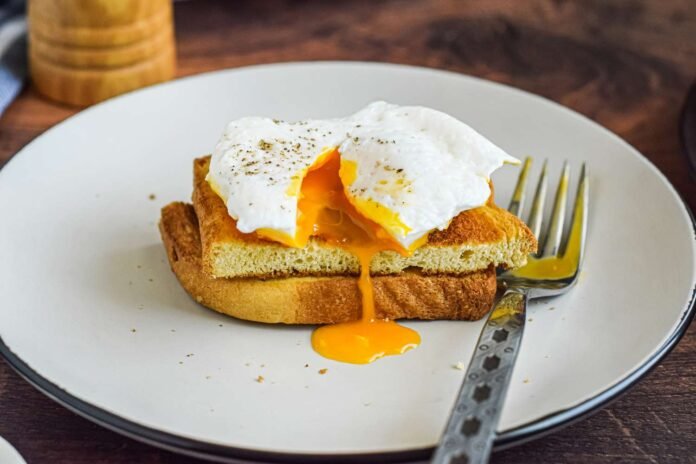Eggs have been a kitchen staple for centuries, cooked in countless ways—scrambled, fried, boiled, and even microwaved. But when it comes to heart health and cholesterol management, one cooking method stands above the rest: poaching.
If you’re looking for a low-fat, nutrient-preserving way to cook eggs that supports healthy cholesterol levels, here’s why poached eggs may be the best choice.
What Makes Poached Eggs a Heart-Healthy Option?
When you poach an egg, all you need is water, a saucepan, and a fresh egg. There’s no need for added fats like oil or butter, which are commonly used in frying or scrambling. This makes poaching one of the best cholesterol-friendly ways to cook eggs, according to nutrition expert Dr. Chris Mohr, fitness and nutrition advisor for Fortune Recommends Health.
“Poaching doesn’t use extra fats like oil or butter, which means fewer calories and no added cholesterol—while retaining all of the egg’s nutrients,” says Dr. Mohr.
How Poaching Helps Limit Cholesterol Intake
Each large egg contains about 186 mg of cholesterol, according to the USDA. While this is manageable for most people, it can add up quickly—especially if you’re also cooking with cholesterol-heavy ingredients like butter or animal fat.
For context:
- 1 tablespoon of butter = 30.5 mg of cholesterol
- Frying or scrambling eggs in butter = more cholesterol per meal
By choosing poached eggs, you’re avoiding extra cholesterol and minimizing saturated fat intake, a key factor in maintaining healthy blood lipid levels.
Poached Eggs Reduce the Risk of Cholesterol Oxidation
Another advantage of poaching is the lower cooking temperature. Frying eggs exposes them to high heat, which can oxidize the cholesterol inside the yolk. Oxidized cholesterol is harmful—it’s a primary contributor to the buildup of LDL (bad) cholesterol in your arteries.
“Poaching avoids direct high heat, reducing cholesterol oxidation—a process linked to artery damage and cardiovascular disease,” explains Dr. Mohr.
By minimizing heat exposure, poached eggs help reduce this oxidative risk, making them a smarter option for those focused on heart health and cholesterol control.
Heart-Healthy Pairings for Poached Eggs
While poached eggs are great on their own, pairing them with fiber-rich and nutrient-dense foods can further support healthy cholesterol levels. Dr. Mohr recommends:
- Whole grain toast: Boosts fiber intake and helps regulate blood sugar.
- Leafy greens (spinach, kale): Add antioxidants and essential vitamins.
- Avocado: Offers healthy fats and fiber that support heart health.
- Tomatoes and bell peppers: Provide vitamin C and extra flavor.
Adding fiber-rich foods to your breakfast may lower LDL cholesterol, according to the Mayo Clinic, and enhance digestion.
Bonus Tip: Choose Nutrient-Dense Eggs
If you want to level up your egg game, consider using pasture-raised eggs. A 2022 study in Foods found that eggs from pasture-raised hens—especially those fed corn- and soy-free diets—contained higher levels of omega-3 fatty acids than typical cage-free eggs.
Omega-3s don’t directly lower LDL cholesterol, but they support cardiovascular health by reducing inflammation and improving arterial function.
Final Thoughts: Why Poaching Eggs Is a Smart Choice for Cholesterol Management
Poaching is one of the healthiest ways to cook eggs, especially for individuals watching their cholesterol intake. By eliminating the need for added fats, reducing cholesterol oxidation, and preserving nutrients, poached eggs offer a heart-smart way to enjoy this protein-packed food.
Pair your poached eggs with fiber-rich foods and healthy fats to build a breakfast that supports your cholesterol goals and overall wellness.




